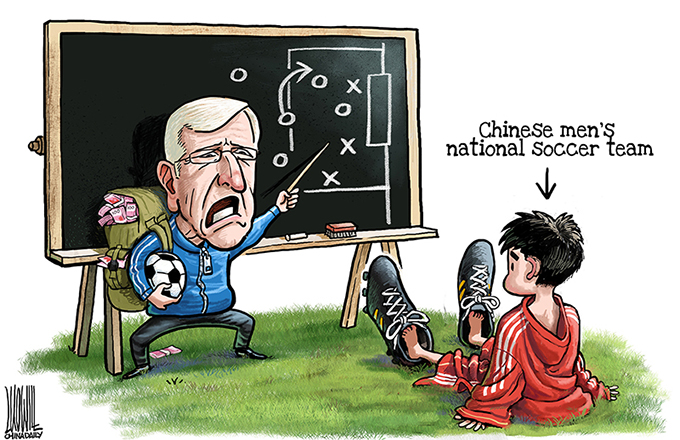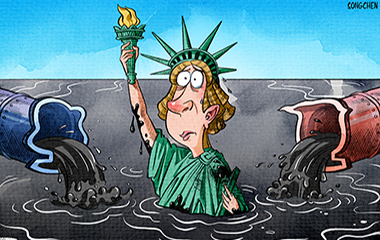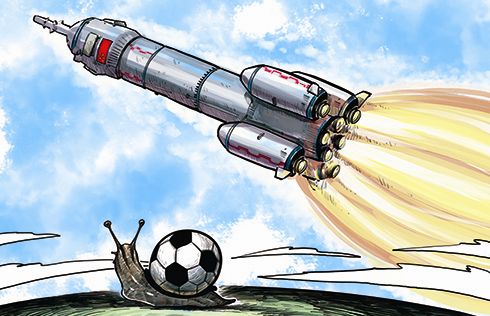More breathing space
During China's uphill battle against its appalling air pollution, a consensus is urgently needed that inaction is no longer an option.
Smog has been shrouding large swathes of northern China, including Beijing, since early this week. The affected area reportedly extends 1 million square kilometers.
Even worse, this is the fourth smog this winter that has reduced visibility to such a level that, as one online wit suggested, a couple cannot even see each other's face when they stand hand in hand.
Both policymakers and the public should not let it fog their minds to the necessity of fighting air pollution together.
On the one hand, Chinese policymakers should recognize the severity of the problem and resist the temptation to keep kicking the can down the road.
As a by-product of rapid and massive industrialization and urbanization in recent decades, air pollution has got worse. And as the country continues to expand urban construction and cities like Beijing accommodate more people and cars, it is more than likely that air quality in this country will get worse before it gets better.
The success of London in cleaning its skies after suffering a similar smog problem should help Chinese policymakers overcome any pessimism that the current air pollution problem is incurable.
Equipped with new energy and environmental technologies and new ideas about sustainable development, today's policymakers are much better positioned to deal with air pollution than their predecessors.
Nevertheless, they should also understand that the turning point in the fight against air pollution will not come easily unless they do their best to address it in a comprehensive way. That means they must introduce higher environmental standards as soon as possible.
On the other hand, while Chinese people are justified in feeling angry and urging local officials to confront their cities' poor air quality more aggressively and effectively, they should also do their bit to reduce air pollution.
The smog smothering northern China shows that any not-in-my-backyard thinking will not help solve such a national problem.
How the burden of fighting air pollution should be fairly distributed among individuals, enterprises and the government is a debatable issue. But the need for everyone to act is not. The unhealthy air brooks no delay.
(China Daily 01/30/2013 page8)


















